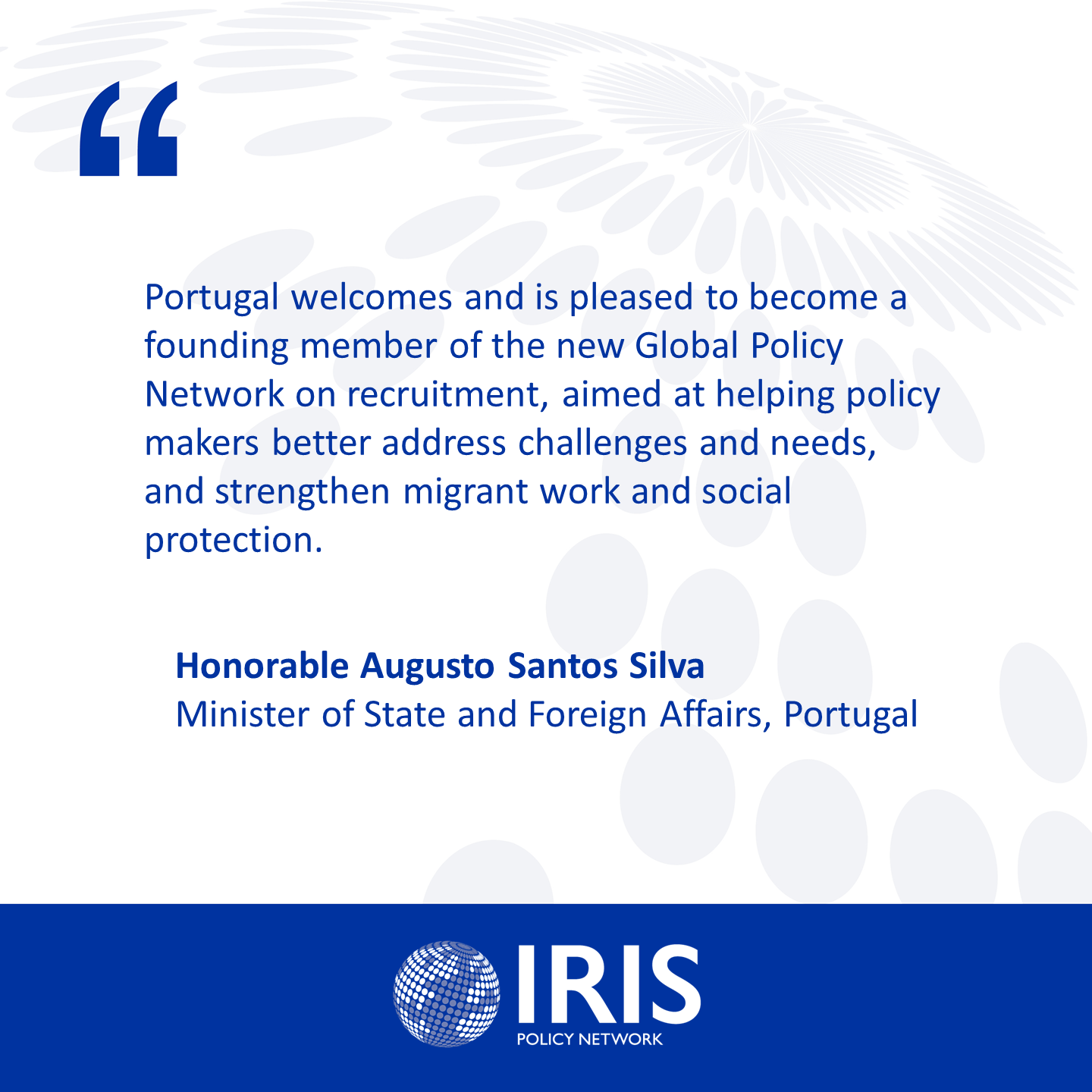Global Policy Network on Recruitment
IRIS takes a whole-of-government approach to promote ethical recruitment and protect migrant workers. This means facilitating dialogue within and between governments, between national and sub-national authorities and between governments and other relevant stakeholders, including the private sector and civil society. It also includes supporting the development and implementation of national action plans, road maps and bilateral arrangements on ethical recruitment, and the development of new labour migration and recruitment policies. IRIS also facilitates learning and cross-fertilisation by convening global and regional conferences to share experiences, identify common challenges and disseminate good practices between IOM Member States.
IRIS supports the new Global Policy Network on Recruitment, a Member State-led collaboration to bring together senior policy makers, regulators and practitioners to address challenges, identify solutions and highlight promising practices to strengthen recruitment regulation and migrant worker protection. The Policy Network was launched in December 2020 (view press release), and IOM invites Member States to contact IRIS to discuss membership or to learn more.
"IOM is proud to announce the new government-driven policy network on recruitment, and we look forward to supporting our Member States to make it a reality. Migrant workers around the world need our collective support; the challenges they face have been brought into stark relief by the ongoing COVID-19 pandemic. The global community has a duty to address these challenges, and the Policy Network will make a vital contribution to that effort. We hope you will join us," said IOM Director General Antonio Vitorino.
The Policy Network will establish a robust and sustainable vehicle for policy dialogue that is solutions- and impact-oriented. It will:
- Provide clear, practical guidance to promote policy coherence and good practice;
- Encourage operation and regulatory cooperation across participating jurisdictions; and
- Establish a mechanism through which guidance and strategies can be tested and scaled, and actions taken.
To enhance the success, scale and sustainability of the Network, it will adopt a multi-pillar approach that includes: 1) awareness raising and communications; 2) capacity building for effective regulation; 3) strategic advocacy; and 4) data and research. You can learn more about the Network here and these FAQs.
Governance and Engagement
The Policy Network will be led by an International Advisory Committee comprised of leading policy makers drawn from IOM Member States. The Committee will determine the policy and strategic direction of the Network, whose principal activities will be implemented through thematic Working Groups. Participation in the Network and Working Groups will be voluntary, with the latter bringing together senior technical leads from across jurisdictions and public authorities. Thematic Working Groups will be the vehicle through which the Network advances collective knowledge, good practice, and enriches policy making and regulation. The Network will be implemented in close coordination with other leading initiatives in the field of ethical recruitment, including the Leadership Group for Responsible Recruitment and the ILO Fair Recruitment Initiative.
The foundation for the Policy Network was laid with the success of the June 2019 Global Conference on the Regulation of International Recruitment, which was held in Montréal, Canada. The Conference brought together 100 policy makers from over 30 countries around the world and resulted in the Montreal Recommendations on Recruitment: A Road Map Towards Better Regulation, a set of global guidance articulating good practice in recruitment regulation and protection of migrant workers. More detailed guidance is explored in the IRIS Handbook for Governments on Ethical Recruitment and Migrant Worker Protection.
You can learn more about the Global Policy Network on Recruitment and the thematic Working Groups here.
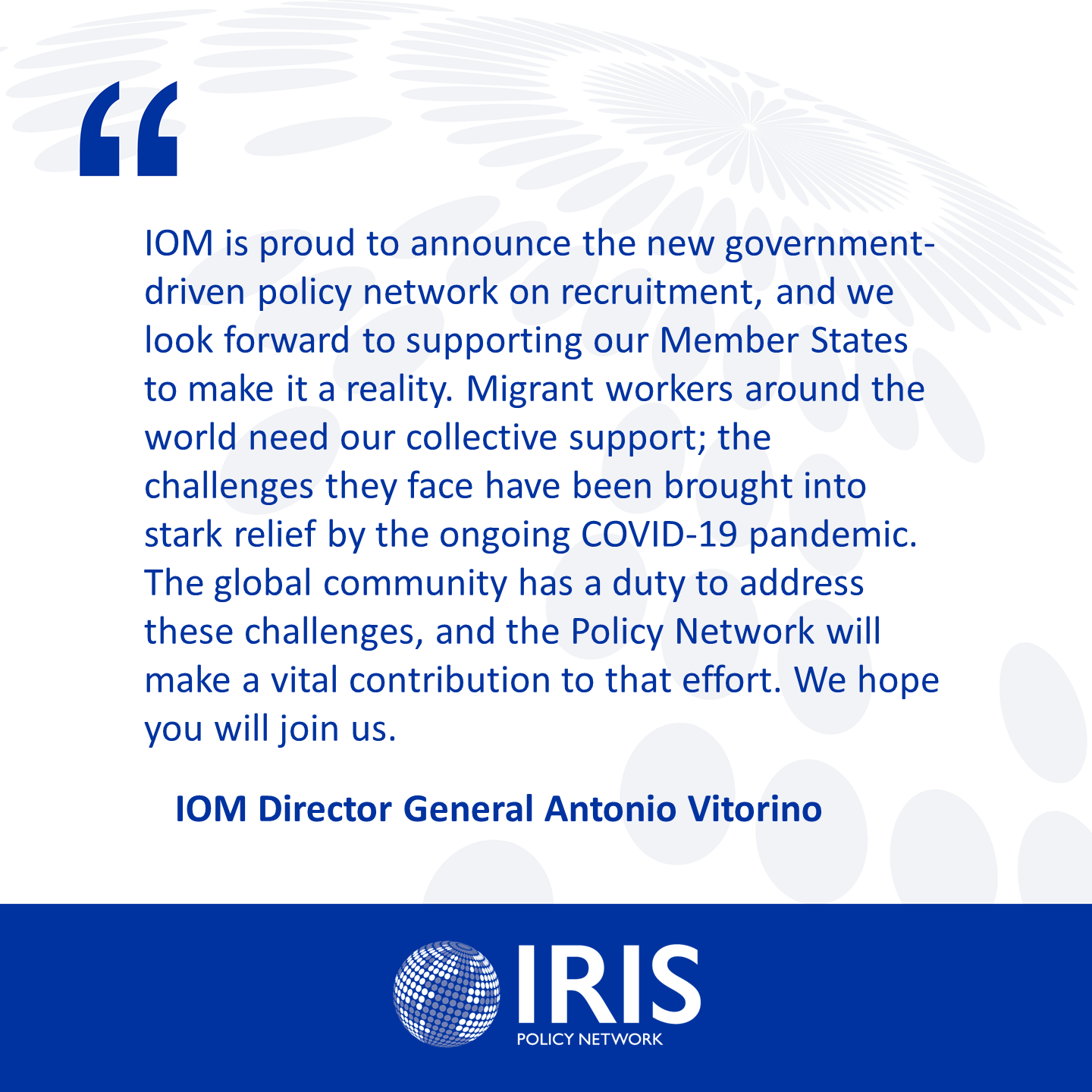 |
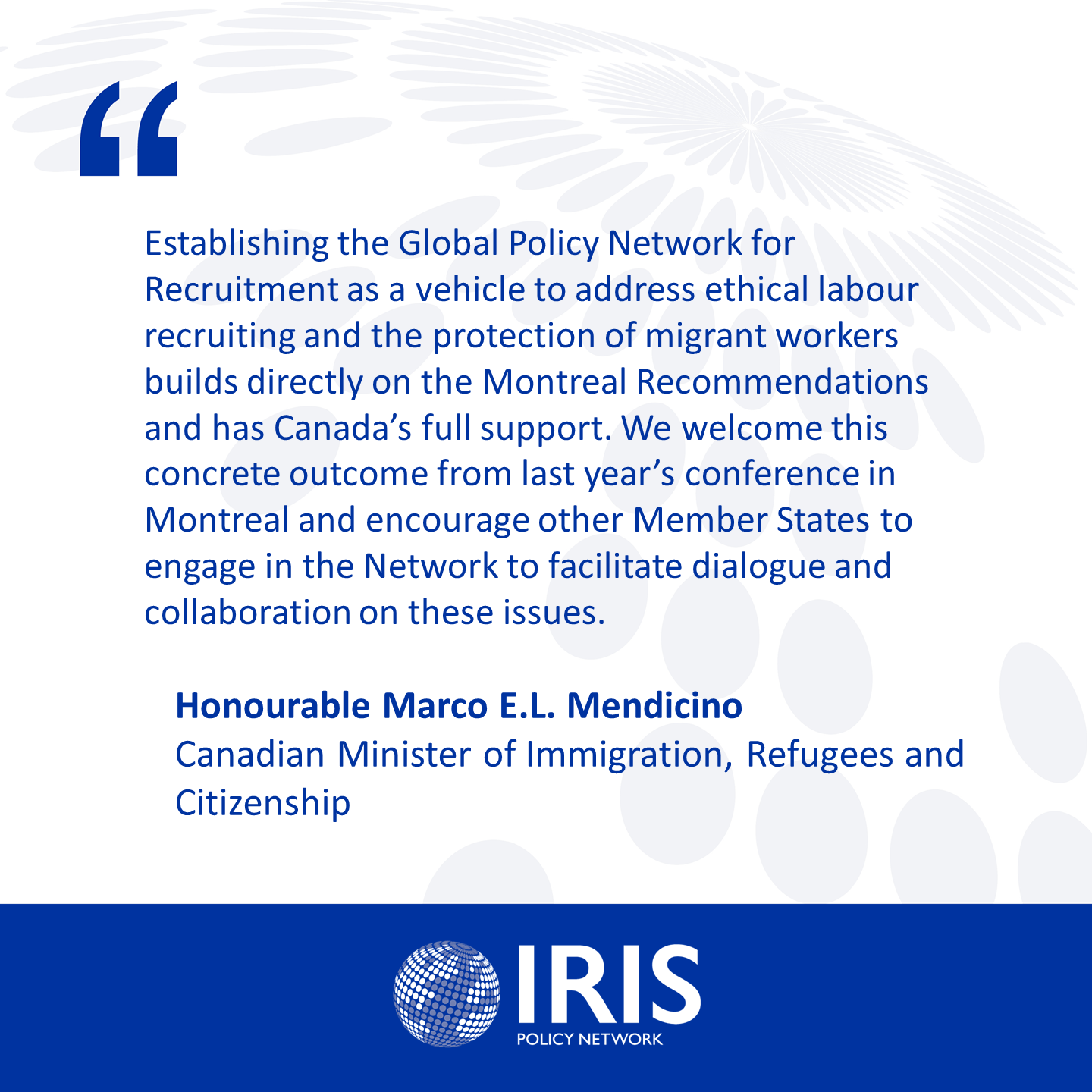 |
|
 |
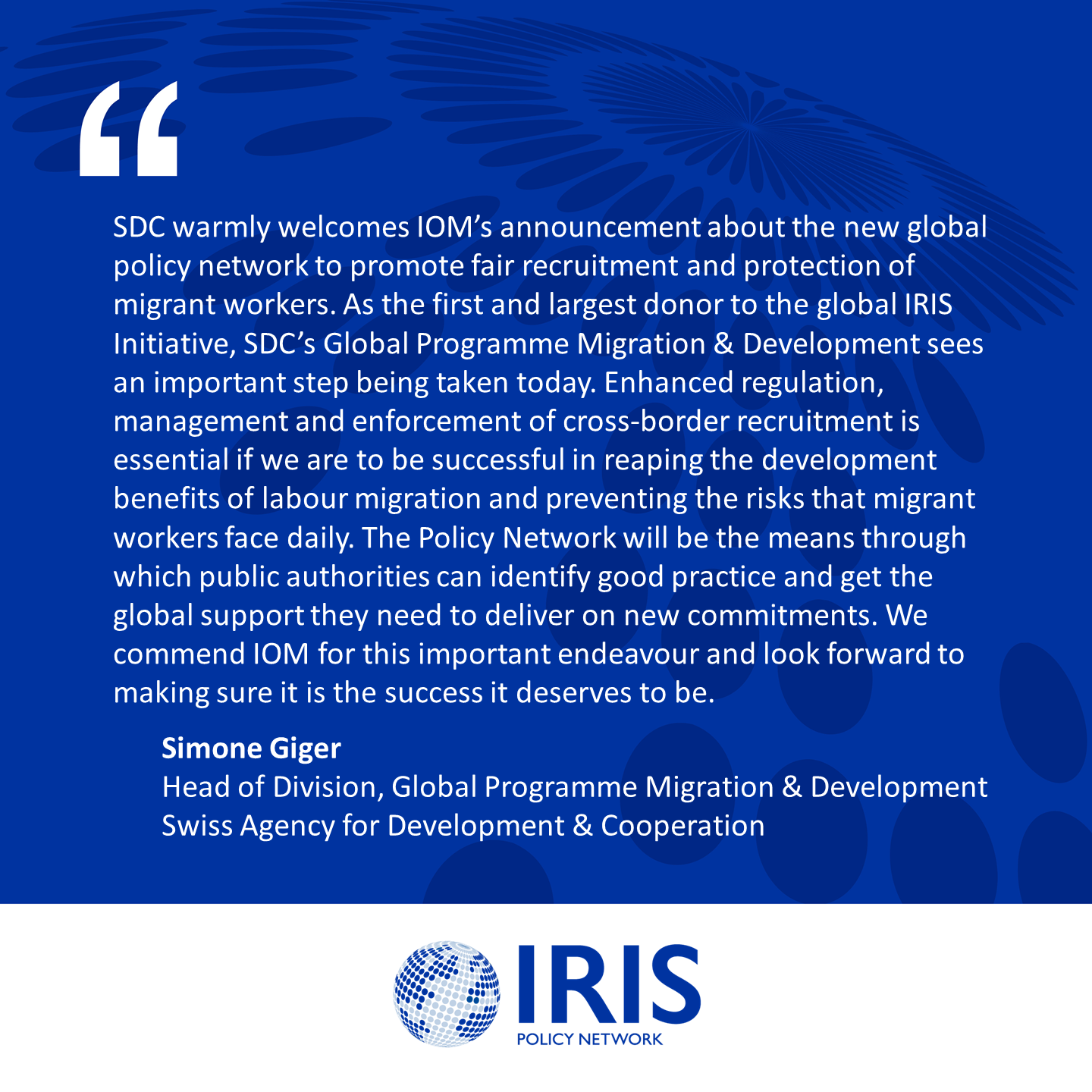 |
 |
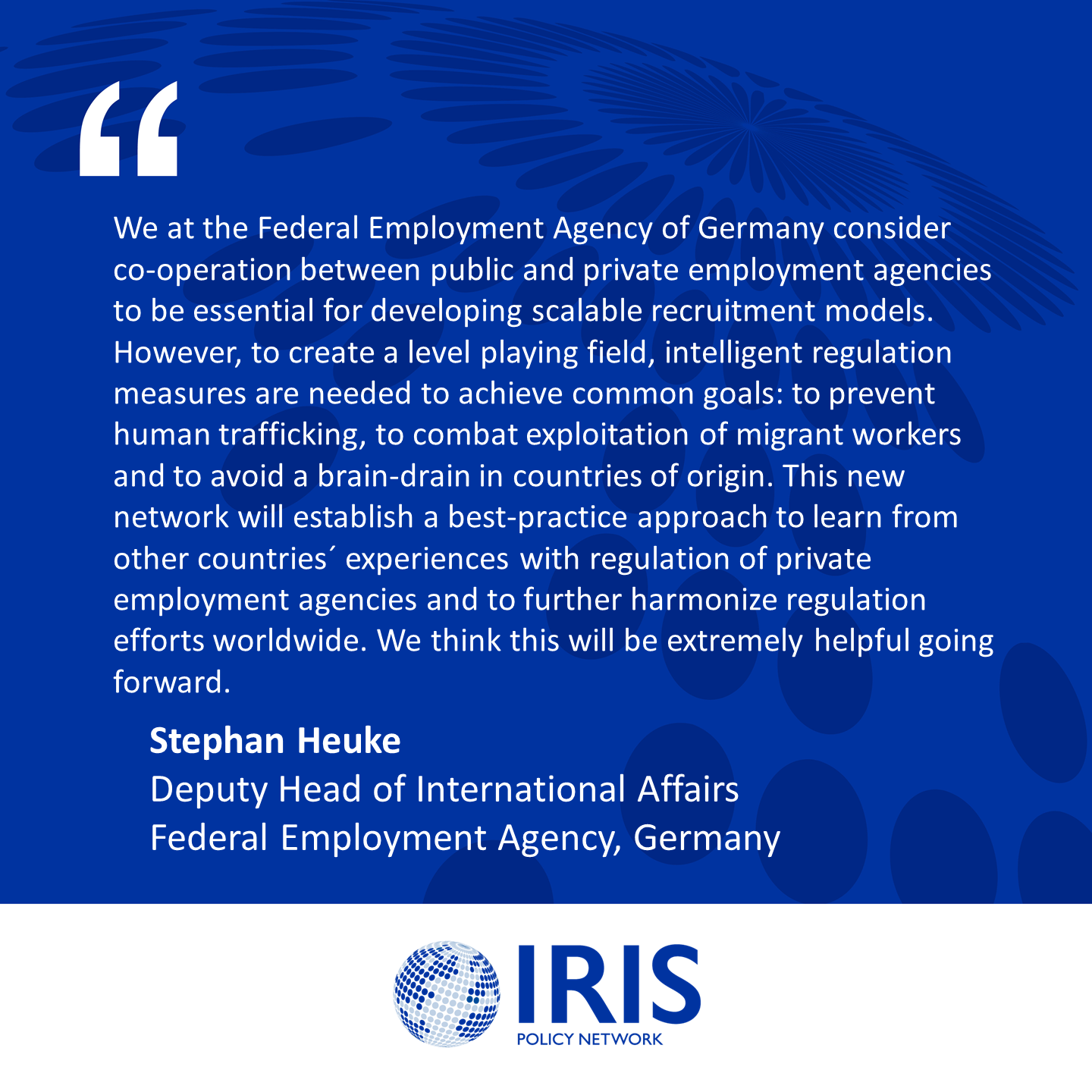 |
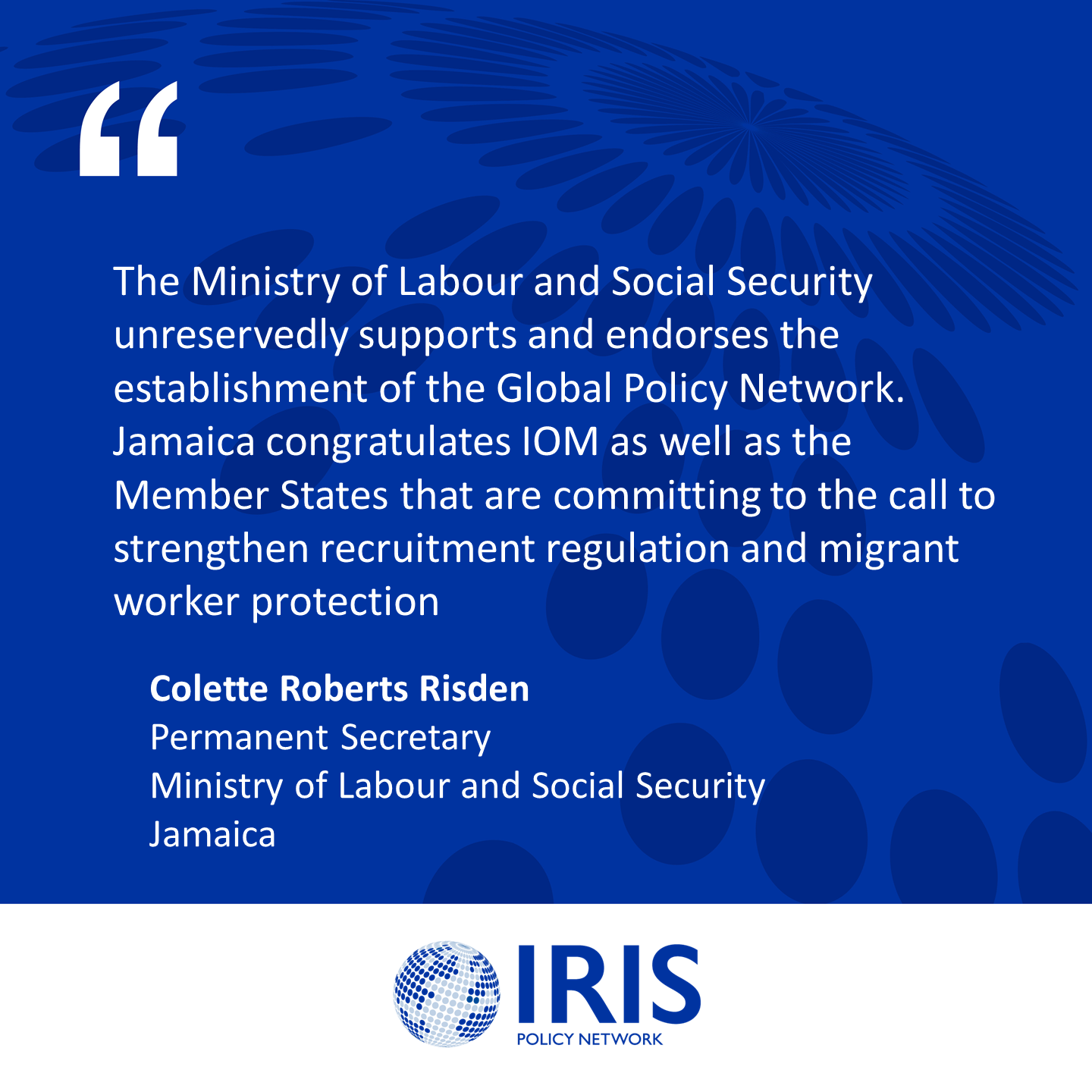 |
 |
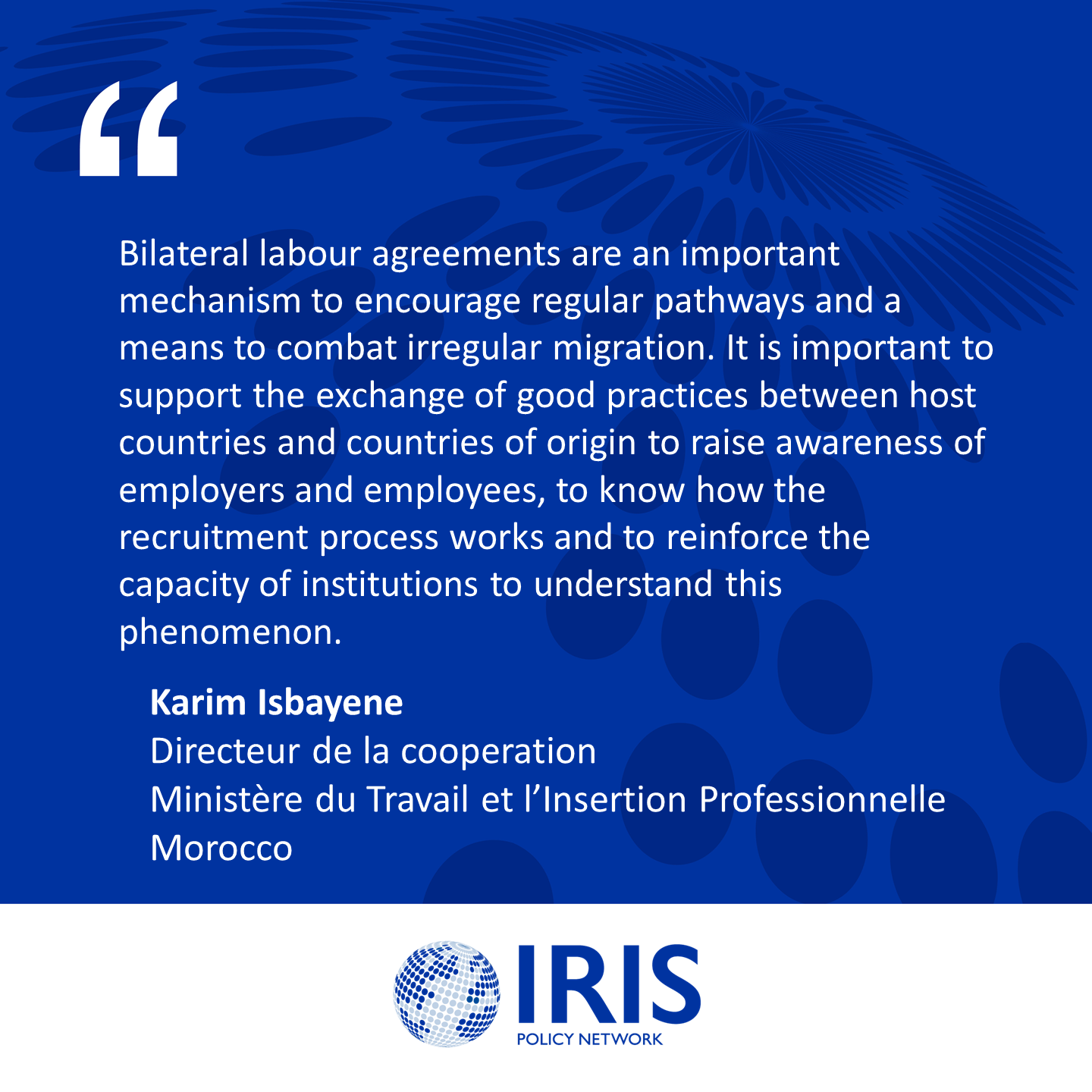 |
 |
 |
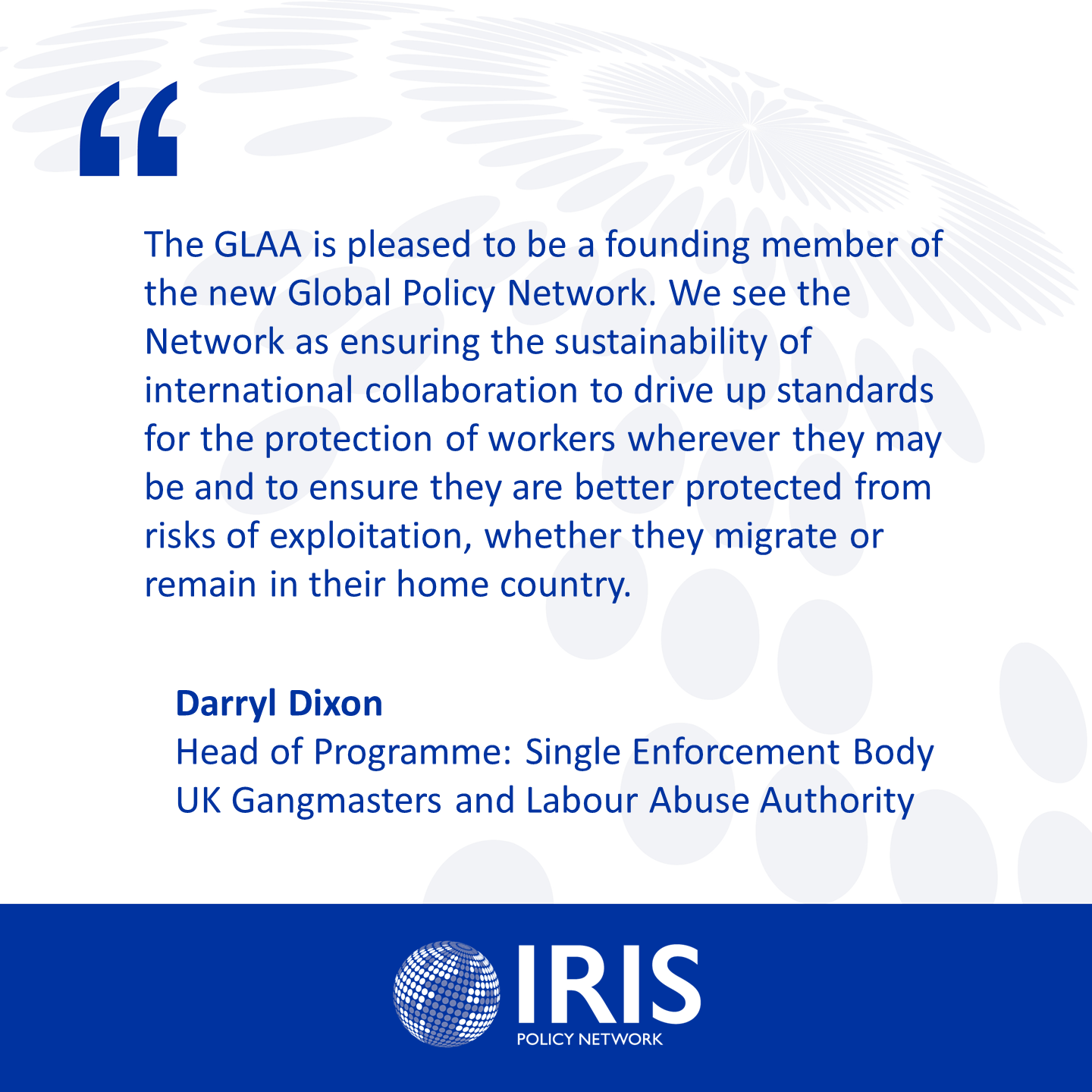 |
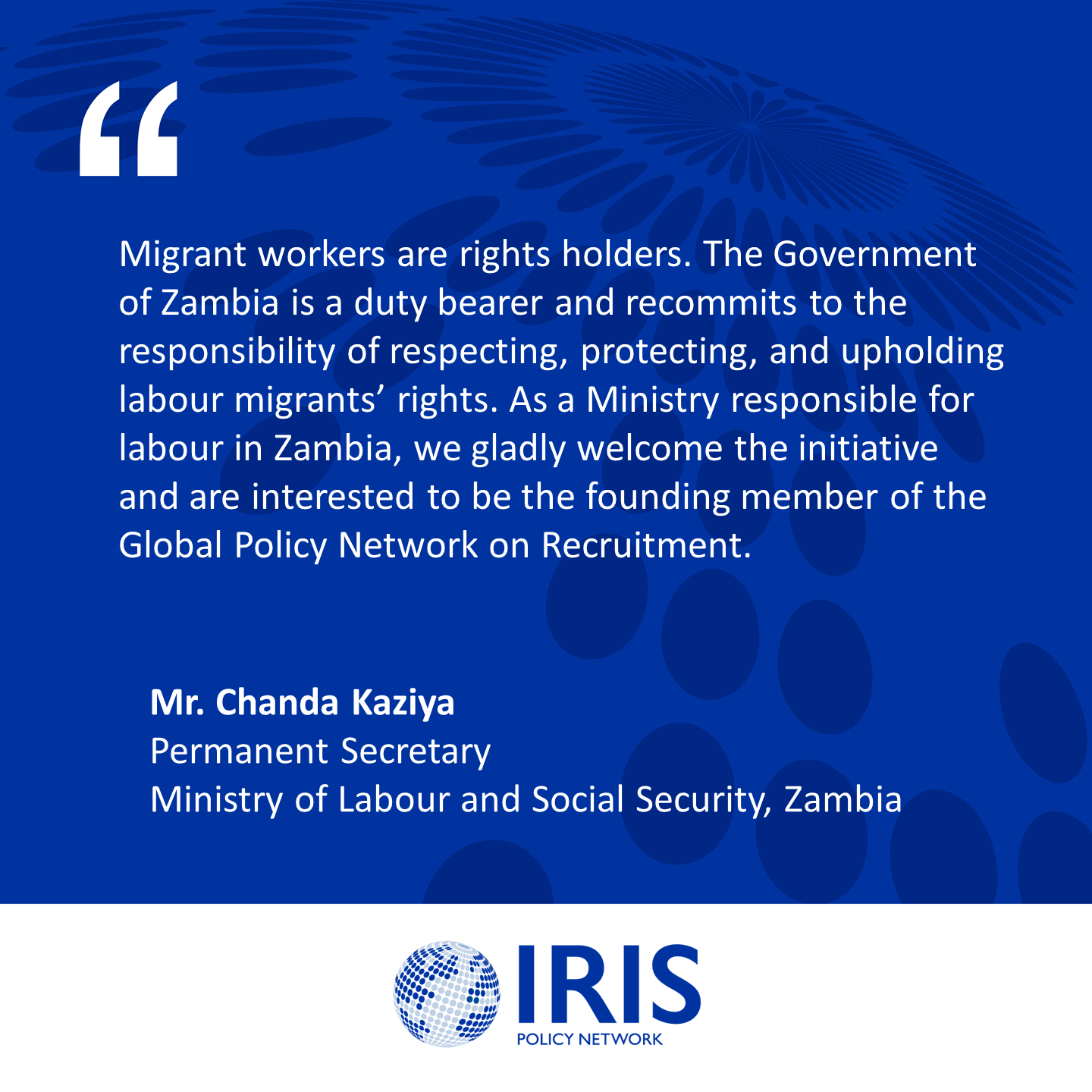 |
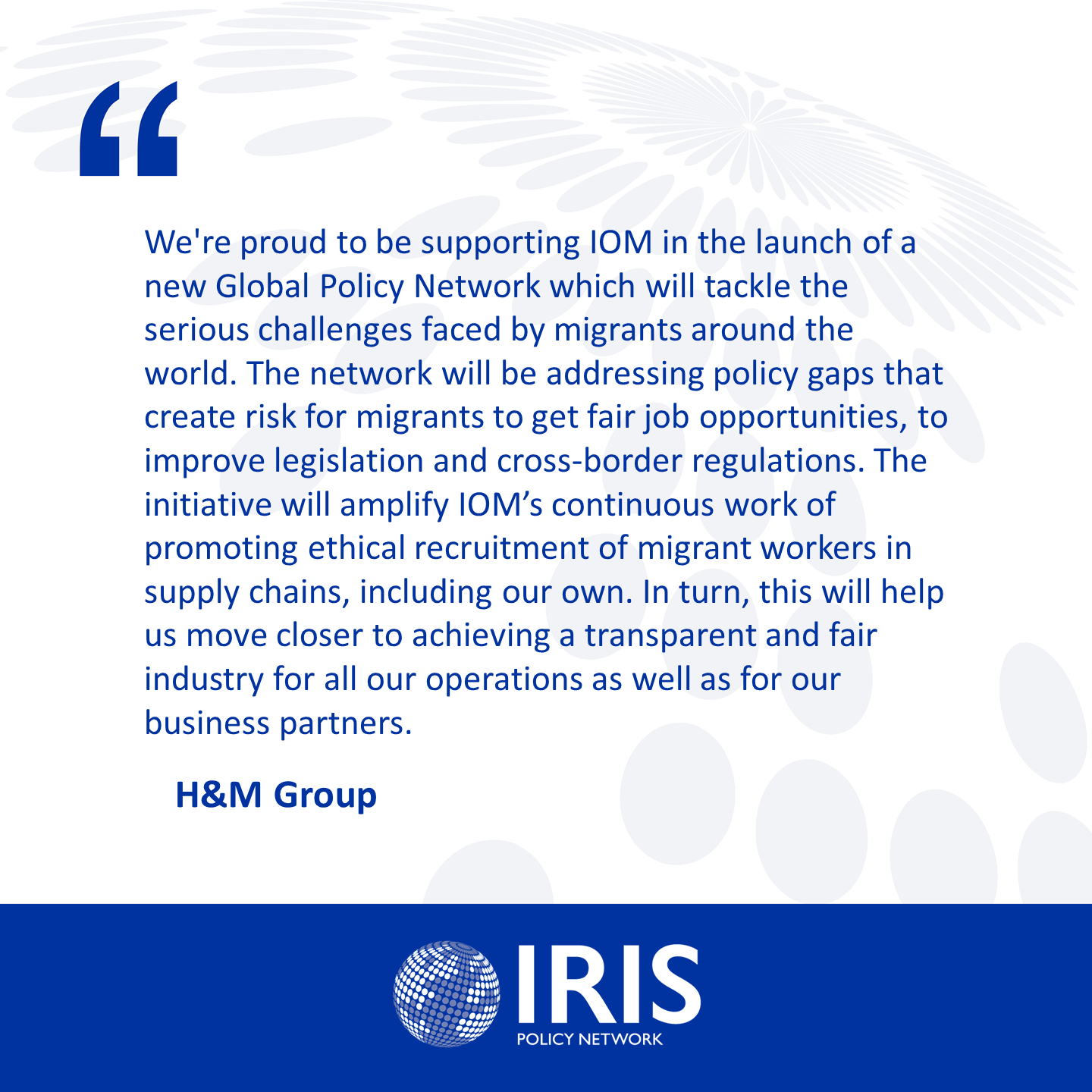 |
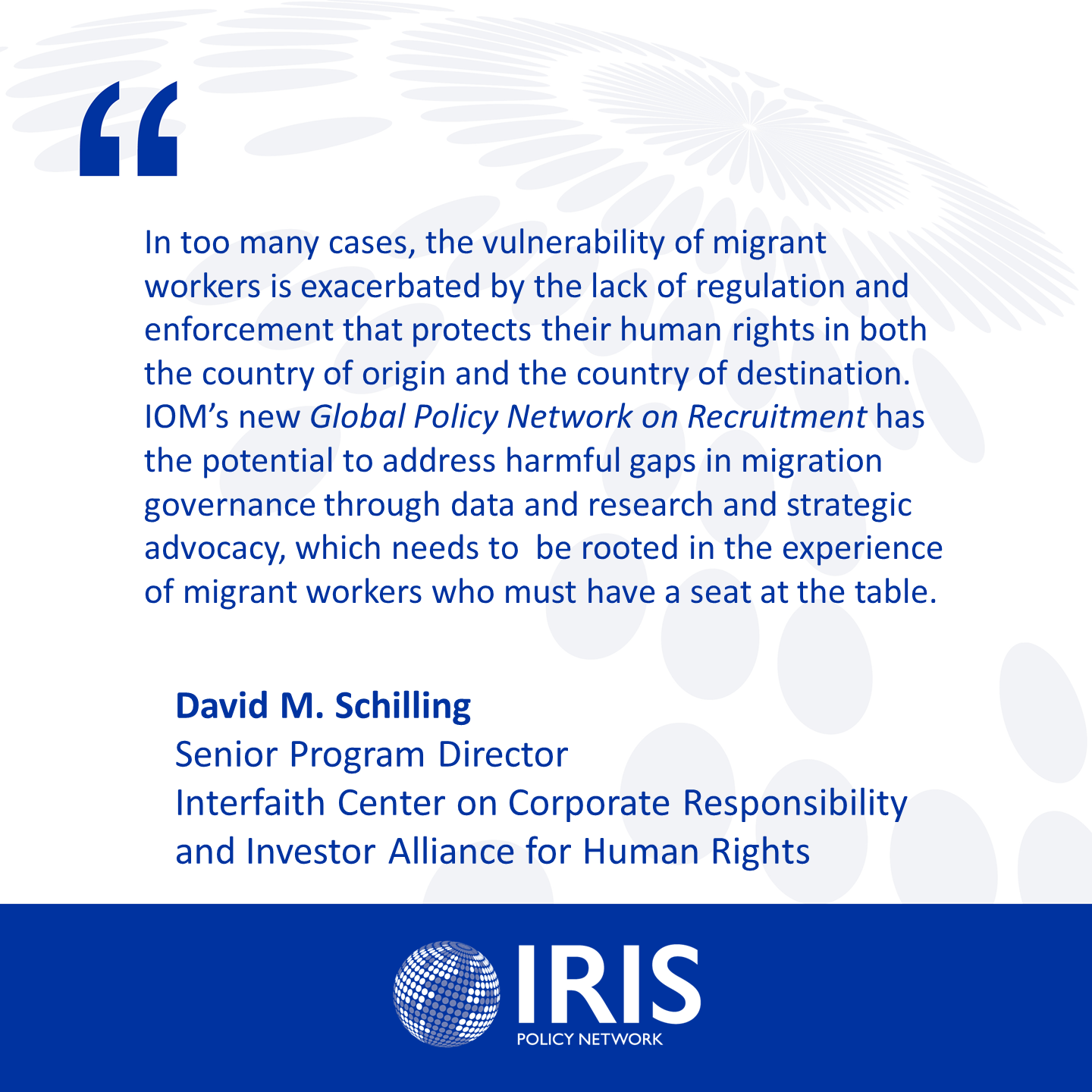 |
 |
|
